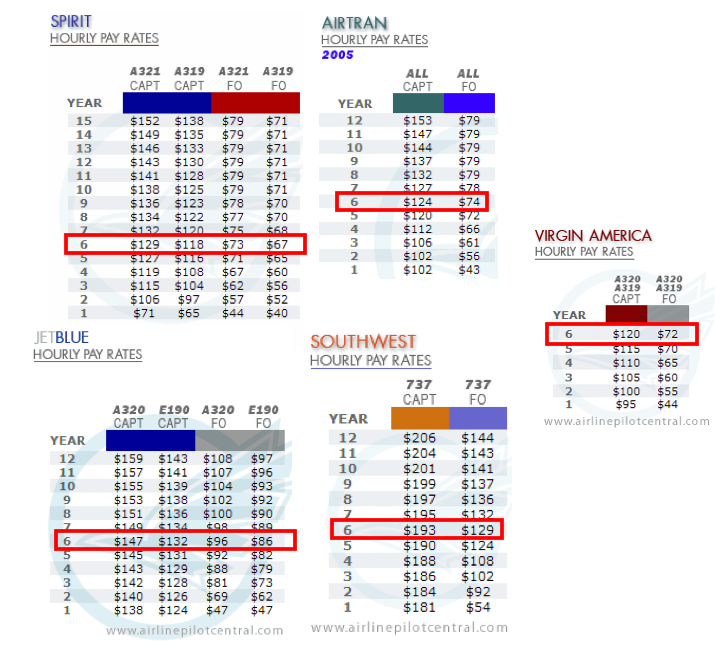How a Strike is Perceived by those In and Out of the Industry
On the morning of June 12, 2010 at 5AM, the end of negotiations and the beginning of a strike by the Spirit Airlines Pilots Union began. Headquartered in Fort Lauderdale since 1999, the airline announced its transition to become America's first Ultra-Low-Cost Carrier in 2007 alongside a re-branding effort. Continuing the race to the bottom, charging passengers for baggage, carry-ons and drinks, Spirit Airlines is asking for more. Targeting not only the pilots wages, which are currently 30% below industry standards, as well as work rules dealing with fatigue and pilot seniority, Spirit Airlines is fighting. Just a little after three years of failed contract negotiations, the National Mediation Board "permitted" the pilots the right to strike. Since then, various media outlets from the New York Times via The Associated Press to the Miami Herald and MSNBC have failed to mention the certain plights that members of the striking pilots union have gone through, have lived with and are being asked in the company proposal. Since when does a sports athlete without a contract show up to practice or continue to play the game? Rookies don't practice until they have a firm contract and heck, even seasoned veterans sometimes holdout even before their contract expires! In what other industry do we see contract negotiations outlasting their expiration and workers forced to continue laboring under older work rules which can sometimes be up to ten years old? In the case of Pinnacle Airlines pilots, they are still flying without a contract going on five years with negotiations currently stalled. It took Atlantic Southeast Airlines right around 5 years to negotiate a new contract that was amending a contract created 3 years prior to the start of negotiations! Back in 2007, Atlantic Southeast Pilots were getting paid rates that were negotiated back in 1998!
The mindset of the mass public, due to misinformation from the media as well as an old school mentality left over from the golden age of flying, is that most pilots make upwards of $200,000 a year. I'll admit that some do but the majority do not. I'll tell you right now that in 2006, the average wage for a first year commercial airline pilot ranged from $14K-$50K. A public website called Airline Pilot Central has most of the US Carriers wages listed as hourly but taking a closer look, an hourly wage earned by a pilot doesn't calculate to 40 hours a week. It varies throughout the airlines, but an average month can range between 65 hours to 80 hours of pay. Taking that into consideration, max flight time is federally regulated to 30 hours in a seven day period, 100 hours in 30 days and 1000 per year.
I pulled data from the public website Airline Pilot Central, specifically these airlines; [Spirit Airlines, AirTran, Virgin America, Southwest, JetBlue]. I have done the easy part and posted the wages that are current of this publishing comparing airlines that fly comparable equipment. In this specific case, ignore the A321 category under Spirit as well as the E190 category under JetBlue.
Taking a look above specifically at the 6 year scale moving clockwise (highlighted in red boxes), captains make $118 / $124 / $120 / $193 / $147 where first officers make $67 / $74 / $72 / $129 / $96 on an hourly basis. These graphics do not take into account the vast differences in medical benefits, compensation and work rules. Note that Virgin America is the youngest of these airlines and is already offering to pay their pilots more than Spirit Airlines. One might inquire on why Southwest Airlines is incredibly higher in pay? It's because they did not take contract hits as much as the Major airlines in the post 2001 collapse and have maintained an industry leading management / employee relationship. Southwest was once the lower paying of the bunch.
I hope that I have enlightened you to some simple facts where the media has miserably failed in its duties. Furthermore, I have included a website that details the history and current issues that plague Spirit Airlines. I encourage you to read further and comment away.
http://www.spiritairlinesscabs.com/THE_LONG_ROAD_TRAVELED.html
Here is an excerpt from the aforementioned website:
~~~~~~~~ POST STRIKE ~~~~~~~ Understanding the hostilty and frustration, one can easily see why this strike occurred: In the last 30 days, the Investors (1) publically threatened to close the airline if a strike occurred; then (2) went back to the bargaining table while informing customers that if the pilots went on strike it would (fully knowing it could not) continue operating "through the crisis" using other carriers; and (3) today, every Spirit flight has been cancelled stranding thousands of passengers; passengers, many of which chose not to make alternate travel arrangments based on the promises put forth by Spirit.
Their pattern is self-evident. This is exactly how the Investors have approached federally mediated negotiations for the past four (4) years. They have outright lied, stalled and been blatantly deceitful -- so much so -- that at one point ALPA brought suit in Federal court to enjoin their blatant refusal to bargain in good faith. Pointedly, the Judge dismissed the case finding, essentialy, that the Court lacked jurisdiction to enjoin the right to bargain any way one wants.
And to this deceit, where do the needs of the passenger fall? Right behind the pilots'.

